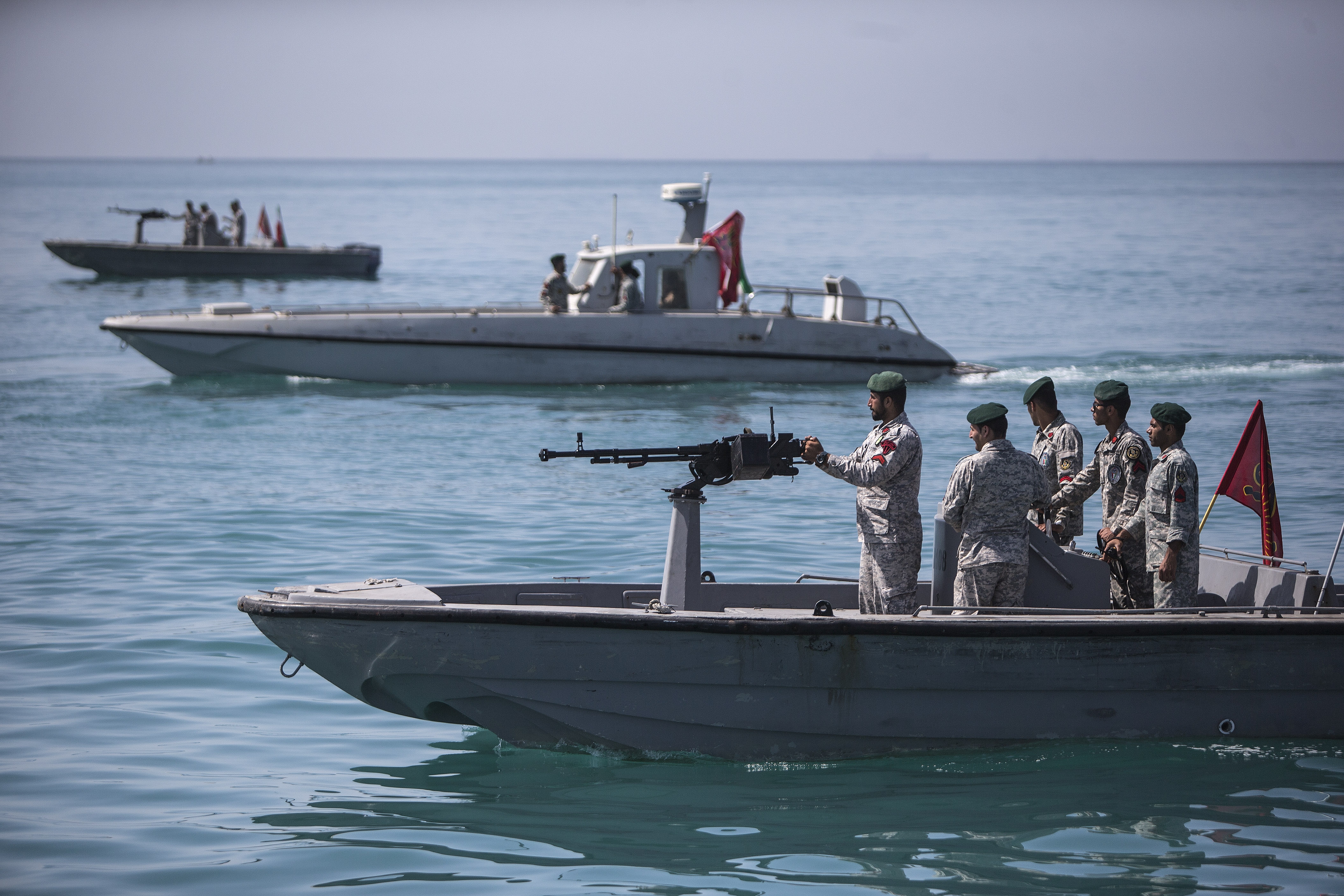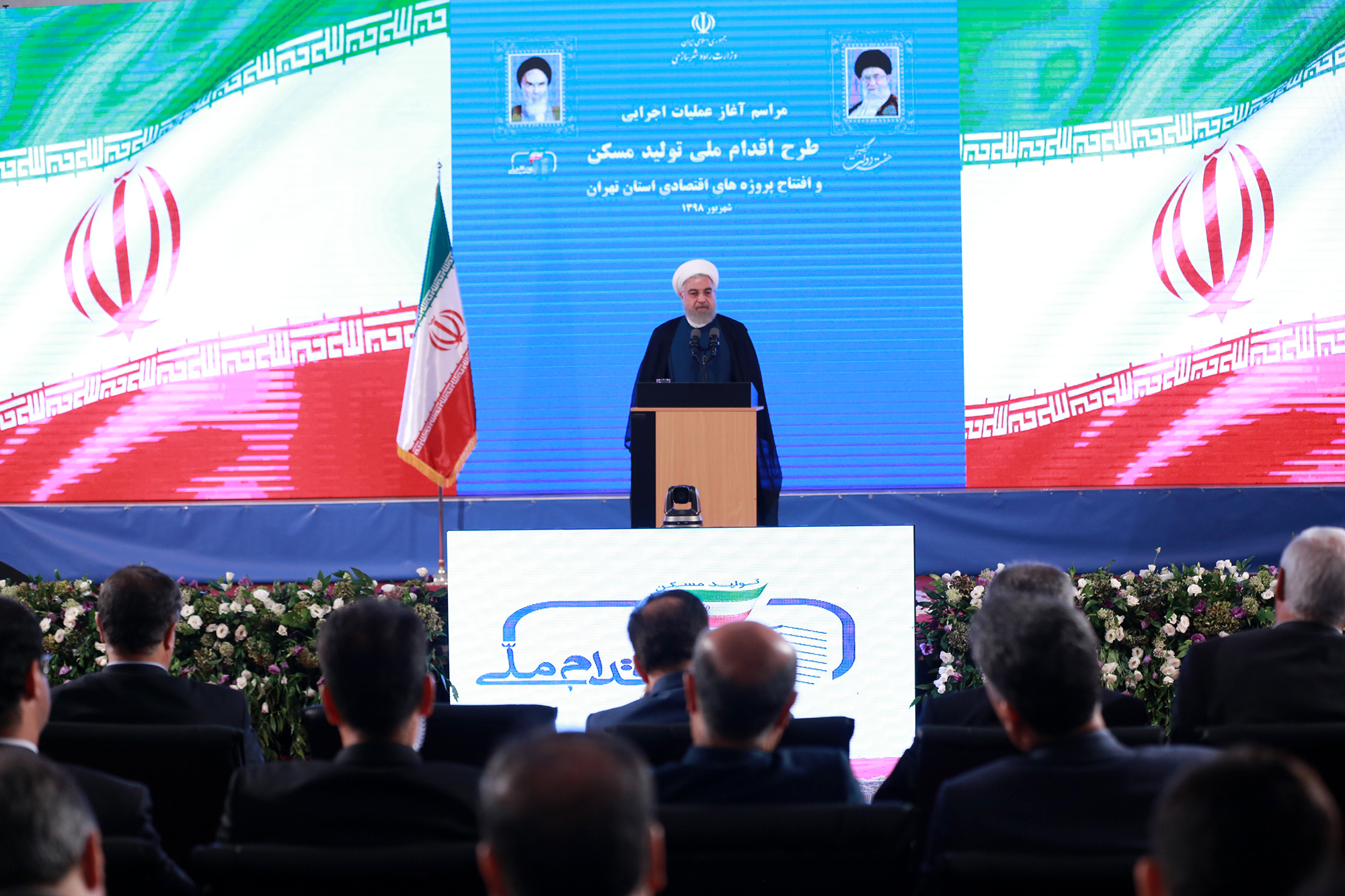
Iranian soldiers patrol the Strait of Hormuz in southern Iran, April 30, 2019. (Xinhua/Ahmad Halabisaz)
"The United States can certainly do much to contain Iran. But, Iran has ways of responding asymmetrically."
by Xinhua writer Liu Chen
WASHINGTON, Sept. 3 (Xinhua) -- As tension continues to escalate between Washington and Tehran, the two sides are closer to a military conflict than any other time in recent years, a U.S. sanctions expert has said.
The crisis, which has been precipitated by the current U.S. administration, could and should be addressed diplomatically rather than through containment, Richard Nephew, a senior research scholar at Columbia University, told Xinhua recently.
Nephew served as the lead sanctions expert for the U.S. team negotiating the landmark Iran nuclear deal from 2013-2014.

The photo released on July 21, 2019 shows the British oil tanker "Stena Impero" surrounded by Iranian Revolutionary Guard near the Strait of Hormuz, Iran. (Morteza Akhoundi/ISNA/Handout via Xinhua)
MILITARY CONFLICTS MORE LIKELY
After the United States scrapped the Iran nuclear pact in 2018 and reimposed economic sanctions on Iran which have severely crippled the country's economy, peace and stability in the Middle East region have been further jolted.
Since May multiple incidents have occurred in the Persian Gulf region arising from U.S.-Iran antagonism, including attacks on oil vessels and seizures of oil tankers. Washington has sent a carrier strike force and additional troops to the Gulf along with continuous pressure on Iran through sanctions.
On Tuesday, the United States blacklisted Iran's space agencies, the latest move to curb Iran's nuclear-related program.
"Tensions are certainly high and getting higher," Nephew told Xinhua in an email interview.
"Iran's nuclear program is once again expanding in problematic ways and there is a greater threat of a conflict in the Persian Gulf than a few months or years ago," said the expert, who is also the author of The Art of Sanctions, a book published in 2017.
One year after the United States ditched the Iran nuclear deal, Tehran announced in May, 2019 that it would gradually reduce its commitments under the pact until it received protection against sanctions on its oil sales and banking transactions. Escalating tensions between the two sides have sparked worries about a possible war in the Middle East.
"'War' is a loaded term. I do not know whether we're close to an actual, sustained war," said Nephew.
"But a military conflict in which U.S. and Iranian military forces fire on one another and people die seems far more possible now than at any time in the recent years," he added.
Nephew once served as Principal Deputy Coordinator for Sanctions Policy at the Department of State from 2013-2015.

People take part in a protest to condemn U.S. withdrawal from the 2015 Iran nuclear deal in Tehran, Iran, on May 11, 2018. (Xinhua/Ahmad Halabisaz)
U.S. PRECIPITATING THE CRISIS
Asked about who should be blamed for the current deteriorating situation, Nephew pointed out that "the United States has precipitated the latest crisis by its policy approach" under the current administration.
The standoff has its roots in America's widely criticized withdrawal in 2018 from the 2015 Iran nuclear deal, which softened economic sanctions on Iran in exchange for a suspension of the country's nuclear development.
Washington reimposed sanctions on Iran's oil exports as well as other key industries, leaving Tehran seeking to restart its nuclear program.
"I think the United States holds substantial responsibility for its refusal to negotiate seriously with Iran; Iran has responsibility for refusing to see how its policy decisions in the past and present contribute to the U.S. hostility," Nephew said.
"The United States can certainly do much to contain Iran. But, Iran has ways of responding asymmetrically," the expert pointed out.
Containment will not itself solve our problems with Iran, "and only a diplomatic approach can," Nephew added.
The two sides should "stop doing what they're doing and restart a serious negotiating process. This is not complicated," he said.

Iranian President Hassan Rouhani delivers a speech in Tehran, Iran, on Aug. 27, 2019. (Iran's Presidential Office/Handout via Xinhua)
PURE CHAOS
Reviewing the U.S. foreign policy strategy over the past two years beyond its dealing with Iran, Nephew called it "pure chaos."
"The Trump Administration sometimes seems to have ten different Iran policies, depending on how Trump speaks about the negotiating track and what he wants," he said.
"This is mirrored in other areas and underscores how there is often a lack of cohesive process underneath any policy decision," the scholar added.
Nephew also said that the current U.S. administration did not speak with one voice as "there is real disagreement as to what is desired of Iran."
To solve the current Iran crisis, Nephew called for a real negotiation "in which compromises have to be made."
The U.S. administration considers every negotiation "zero-sum" and does not have the ability to scale its demands against its capabilities and needs, he observed.
"This is why it is so hard to make progress, as they're convinced every negotiation is a battle to the death rather than part of a continuing process and conversation," Nephew said.



